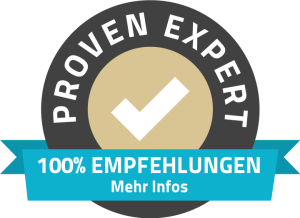The interview
1. How does an Assessment Center (AC) differ from a traditional job interview?
In a job interview, you are typically interviewed by 1-2 individuals, often the department head and a human resources representative. The decision for personnel selection is then made based on the personal, subjective assessment of the interviewers after 1-2 interviews lasting about 1 hour, and considering the available credentials.
In a group AC, on the other hand, there are numerous observers from the HR department and relevant departments, as well as specially appointed psychologists/management consultants. Your behavior is observed and documented in writing by these trained observers throughout a period of 1-2 days, and evaluated based on predefined criteria. Unlike the traditional job interview, in a group AC, you can demonstrate your behavior in interactions with others. For example, your assertiveness in group discussions can be observed. In essence, a group AC aims to compare your performance with that of other applicants and select the best candidate(s) for the position.
An individual AC (or Development Center) also provides better predictive value for your fit for the position compared to a job interview. This process can also complement a job interview. For example, during an individual AC day lasting about 4-8 hours, activities such as role-playing, such as employee or customer conversations, are simulated. Additionally, case studies that involve the preparation and presentation of numerical and textual materials are often included.
The employer defines criteria to be observed and evaluated in both individual and group procedures beforehand. This ensures the high reliability of the AC results.
2. Why do companies increasingly use this selection process as an alternative to traditional job interviews?
The predictive power of Assessment Centers for successfully filling a new position is significantly higher than that of a job interview. This is due to the following reasons:
A job interview is much shorter, typically lasting 1-2 hours, compared to an individual AC/Development Center lasting 4-8 hours or a group AC spanning 1-2 days.
In a job interview, you only get a subjective impression of social skills through personal conversation. In an AC, social and, especially, methodological competencies such as leadership, delegation, communication, and conflict resolution can be assessed multiple times through AC exercises. Observations from the exercises can be further supported or questioned through semi-structured in-depth interviews and psychological test procedures. The validity of an AC is thus higher than that of a job interview.
3. What do observers in the AC pay particular attention to in candidates?
In the AC, your methodological and social competence takes center stage. Your professional suitability for the position is assumed after a prior review of application materials and a job interview. Employers in the AC are particularly interested in aspects like teamwork and your ability to assert yourself. The competencies observed depend on the requirements of the position to be filled, and can largely be derived from the job advertisement by the candidate.
4. What type of exercise can candidates expect in almost every AC?
- Role-plays: employee conversations, customer interactions
- Group discussions
- Structured/psychological in-depth interview
- Self-presentation
- Case study
- In-tray exercise
5. How can I prepare optimally and comprehensively for an AC, given the variety of possible tasks?
- Analyze the job posting: What social and methodological competencies are required?
- Try to consciously demonstrate the desired competencies (only if they align with your personality). In any case, do not prepare a role that you cannot sustain in your professional life.
- You can practice presentations and self-presentations of your career path in advance and seek feedback from friends.
- Through coaching, you can receive qualified feedback on your strengths and weaknesses and improve your performance in the AC. Coaching can help you prepare for all exercises and role-plays systematically.
- Thoroughly familiarize yourself with the employer and current industry trends. This can help you assert yourself in group discussions if necessary.
- Exercises are evaluated independently of each other: Don’t be discouraged by a difficult start!
This interview was conducted by Karrierefaktor.de.
Non-binding initial consultation
Discuss your career strategy with us in a personal, free initial meeting. We will analyse your individual needs and show you a realistic time frame for your plan.
You have the choice:
- on site in our offices
- virtual
Call us: 0211 / 86286283 or book an appointment with us directly online.


